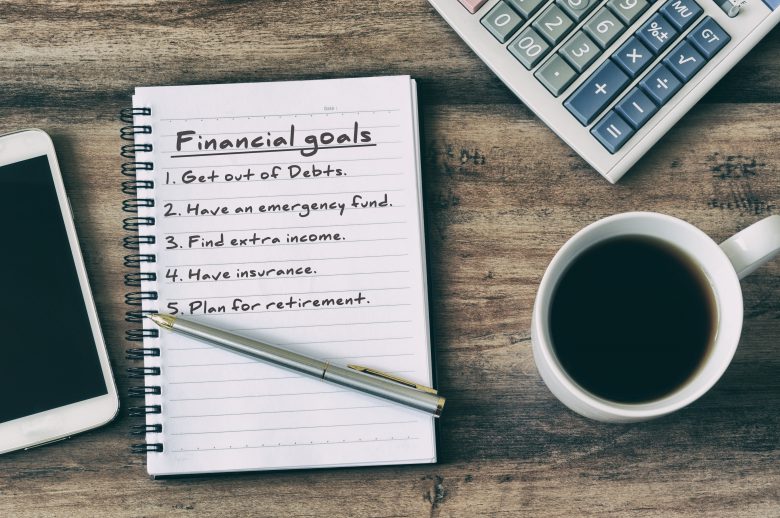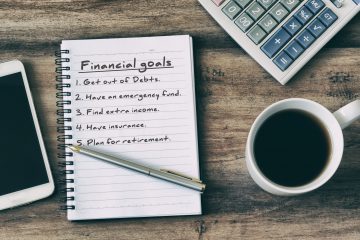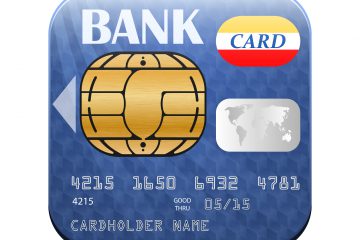New year, new you – or so the saying goes. If you’re ready to take the first step towards financial freedom and start building healthier money habits, the new year could be the perfect time to change things up a bit. Start preparing for a more secure financial future with these tips.
1. Make the most of automation
Setting up automatic savings deposits is one of the easiest and smartest things anyone interested in personal finance can do. It’s not even a habit, really (though it will help you form better habits in the future). By automating all direct debits and regular transactions you are left with a clearer picture of what you have available to spend.
To ensure you don’t get tempted to dip into your savings account, enquire with your bank whether you can open a hidden account that isn’t listed with your everyday accounts, or one that is only accessible by visiting the bank branch.
2. Top up your super
The Australian Government offers incentives for putting more into your superannuation. Depending on your age, you can make up to $25,000 in superannuation contributions a year at a lower tax rate of 15%. You won’t be able to access superannuation until closer to retirement, but it is a useful way to strategically invest more money in the long term.
3. Take 15
When Charles Duhigg, author of “The Power of Habit: Why We Do What We Do in Life and Business,” decided to overcome his 3pm cookie habit, he distracted himself from thoughts of baked goods for 15 minutes to see if his initial craving dissipated.
This same thinking can be applied to your spending. If you feel an impulse to splurge on something unnecessary, immediately distract yourself for 15 minutes. Say you’re about to checkout through your favourite online store – before you select your payment method, take 15 and catch up on the news. Set a timer, and once 15 minutes is up, ask yourself – does that initial impulse to spend feel as strong now?
There will be times when this method doesn’t work, but if you apply it to all spending urges, you’ll be sure to resist sometimes.
4. Learn to enjoy cooking at home
Here’s the truth about cooking at home – it can be fun, it’s cost-effective and usually healthier for you. Don’t get me wrong, eating out is one of life’s great pleasures, but not only is it hard on the wallet, it’s also not especially good for you if you’re eating out all the time. That’s because the portion sizes are generally larger, and the food is made for taste, not for health.
Make a sensible decision to save dollars and calories this year by cooking more at home. If you have trouble starting you could try home order packages like Marley Spoon and Hello Fresh, but the real value will be in going to the grocery store yourself to source fresh ingredients and make your own food.
5. Stay engaged with your financial projects
Whether it’s business, properties, stocks, blockchain, or a combination of financial strategies, it’s fine to set them, just don’t forget them. Maintain regular contact with your financial investments, keep an idea of where the money is going, how much is going where and whether there are ways you can improve the process.
Your finances are the lifeblood of your lifestyle, so always stay in touch and make sure the pulse is steady.

6. Don’t waste time on negligible savings
Ever driven half an hour out the way to save a few bucks on petrol, only to realise the time you sacrificed wasn’t worth the dollars? This year, avoid being too thrifty with your finances and focus on the value of the time you have.
You’ll never find financial freedom chasing savings on a dollar. You’ll only stress yourself out and miss out on what’s important. Instead focus on streamlined plans, practical saving and reducing unnecessary spending.
7. Align your purchases with your goals
Financial freedom and smart saving don’t mean you can’t buy things. What you should do is question whether your purchases align with your goals. Are you buying that new Macbook because you need the technology, or is there a more cost effective alternative for you to get things done?
Invest in yourself, your health, education and wellbeing instead of commodity items that waste time and money. Develop a philosophy about where you’re heading and how purchases will help you get there. Let everything else fall away.
8. Buy for value, not price
When making purchasing decisions this year consider overall value, not just the item that is cheapest.
Like most financial advice, the long game is the smartest. By choosing purchases that provide optimum value, you’re decreasing spend over time.
Sometimes it’s okay to pay a little more for something made with higher quality. However, always balance the perception of higher quality with the fact. If something is cheaper, but will most likely last as long as a more expensive item, it makes budget sense to go low.
9. Become an expert
Before embarking on a new investment strategy take the time to read up on the subject matter. For example:
- Study market trends and bank rates for real estate
- Track stock market behaviour through a banking app
- Read broadly on financial planning and wealth generation.
Taking the time now to learn before before starting your strategy later could reap rewards and avoid common pitfalls.
10. Invest in your career
Chances are you could be progressing your career faster than you think. What’s the next step in your chosen job. Is it as simple as asking for a pay rise? You could:
- Sign up for a course or accreditation
- Update your resume
- Look for job opportunities
- Start the first phase of a career switch
- Find a mentor or advisor
Whatever you do, remember your career is the most reliable way to generate the revenue you need to start saving and investing.

11. Giving is getting
Don’t get caught up in the rat race. Hoarding wealth is not the path to good health, financial or otherwise. The world is littered with examples of successful business people, entrepreneurs and investors who are driven by the mantra “Giving is getting.”
How can you be the most service, to clients, partners, to your own businesses? Giving back and paying it forward means what goes around comes around.
12. Save more than average
The old ‘save 10% rule’ is fine and should be adhered to at a minimum, but if you’re looking to do more than the bare minimum, follow the habit of many successful people and save more, up to 20% of your income. That way, you’ll have more to invest in new ideas, businesses, stocks and strategies.
13. Make a little extra
The gig economy provides opportunities for easy access to temporary work at times and hours that suit you. Gig economy work can also be beneficial for tax purposes. For example, if you took up work with a rideshare service you may be able to deduct your earning from tax based on the purchase of a vehicle.
14. Keep something tucked away for a rainy day
Life throws up some unexpected surprises, and even the most diligent financial planners can’t prepare for every possibility. That’s why it’s worth putting a little something away for a rainy day. An emergency fund will help you pay for any sudden bills that come up, and provide a buffer for an unexpected crisis. And if you find that the emergency fund isn’t enough, you could also consider taking out a personal loan. SRG Finance can help you find a loan to suit your circumstances. If you need easy access to cash at a fair rate, talk to SRG today and discover the difference.



